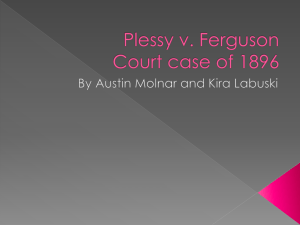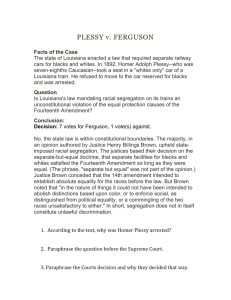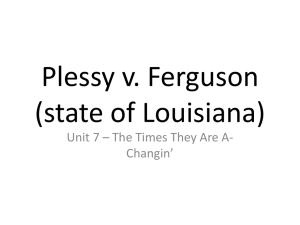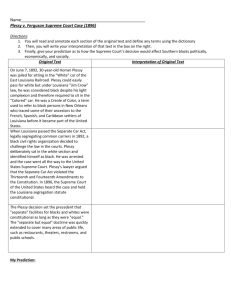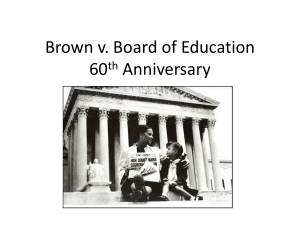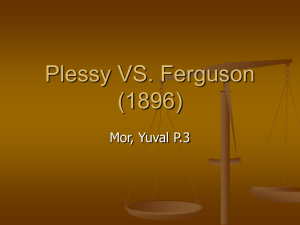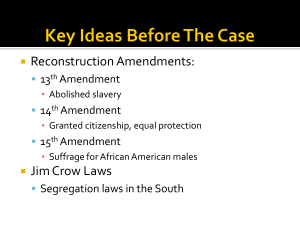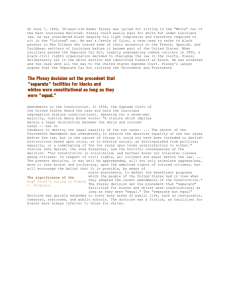Plessy v Ferguson
advertisement
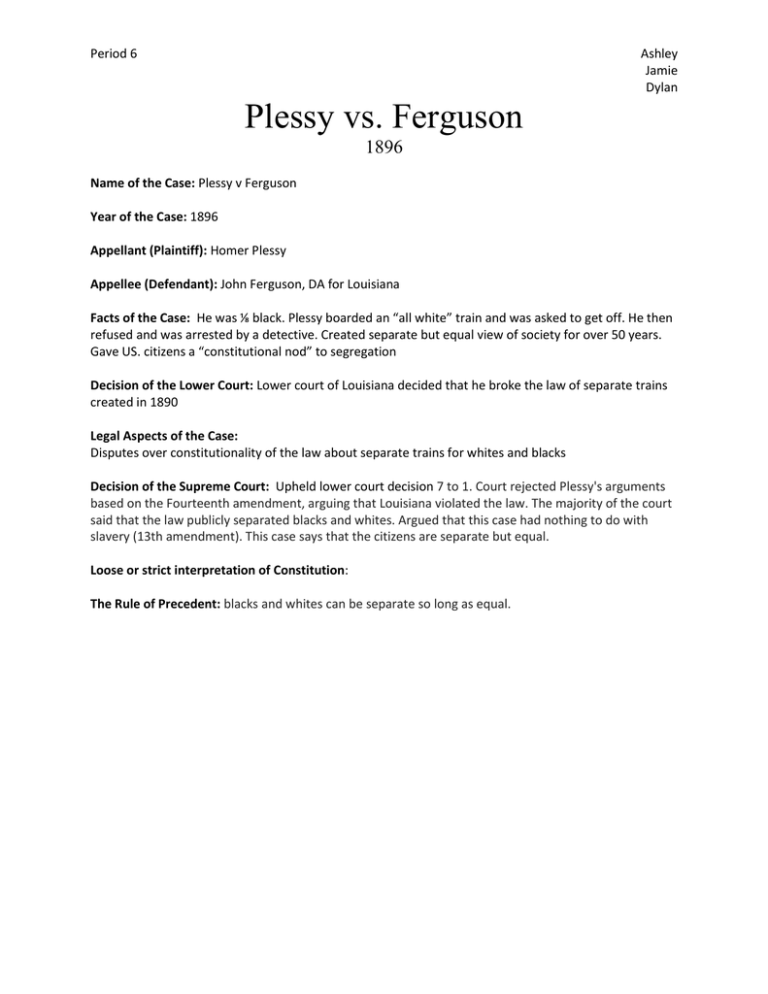
Period 6 Ashley Jamie Dylan Plessy vs. Ferguson 1896 Name of the Case: Plessy v Ferguson Year of the Case: 1896 Appellant (Plaintiff): Homer Plessy Appellee (Defendant): John Ferguson, DA for Louisiana Facts of the Case: He was ⅛ black. Plessy boarded an “all white” train and was asked to get off. He then refused and was arrested by a detective. Created separate but equal view of society for over 50 years. Gave US. citizens a “constitutional nod” to segregation Decision of the Lower Court: Lower court of Louisiana decided that he broke the law of separate trains created in 1890 Legal Aspects of the Case: Disputes over constitutionality of the law about separate trains for whites and blacks Decision of the Supreme Court: Upheld lower court decision 7 to 1. Court rejected Plessy's arguments based on the Fourteenth amendment, arguing that Louisiana violated the law. The majority of the court said that the law publicly separated blacks and whites. Argued that this case had nothing to do with slavery (13th amendment). This case says that the citizens are separate but equal. Loose or strict interpretation of Constitution: The Rule of Precedent: blacks and whites can be separate so long as equal.
